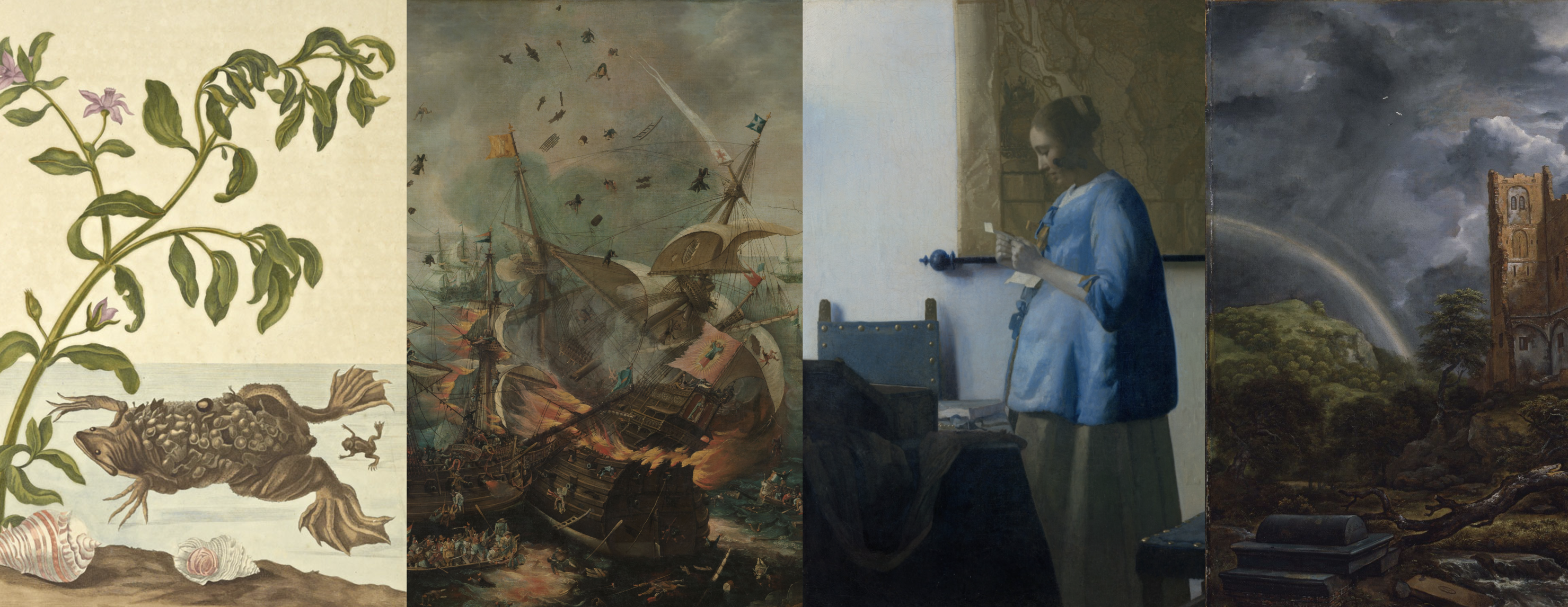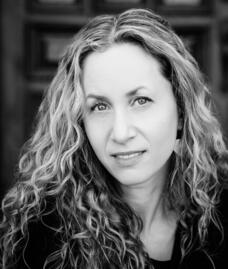HUMS 246, Modernities - Early Modern Media

Course Description:
How did ideas move in the early modern world across time and place, between people and things? Looking beyond art history’s traditional understanding of “medium” as referring to what a work of art is made from, this seminar explores the broader range of “media” that were central to discourse and debates about faith, politics, and the natural world during a period of great technological innovation and global expansion, as well as violence, upheaval, and uncertainty. Focusing on Dutch art, science, and thought during the long seventeenth century—a context in which experiments with media at home and encounters with media from abroad were especially charged, our discussions will range from optics to navigation, theology to mathematics, landscape to microscape, clocks to cannons, and shells to flowers. Readings both historical and theoretical will complement several visits to study works firsthand in nearby collections.
Led by
 |
Professor Marisa BassMarisa Bass is a scholar of early modern art in northern Europe, with a focus on intersections between art and intellectual culture in the Netherlands. Her research interests include the representation of nature, the cult of images, portraiture, Renaissance notions of imagination and invention, print culture, and the funerary monument. She was recently a Member in the School of Historical Studies at the Institute for Advanced Study in Princeton (2015-2016), a Visiting Scholar at the Max Planck Institute for the History of Science (summer 2016), and a fellow at the Netherlands Institute for Advanced Study in Amsterdam (spring 2017). She has held previous fellowships at the Huntington Library, the Scaliger Institute, the Warburg Institute, the Metropolitan Museum of Art, and the Center for Advanced Study in the Visual Arts. Bass teaches widely in the fields of Renaissance art, material culture, and intellectual history. Recent courses have addressed topics ranging from book history to early modern anatomy, art and nature, Rembrandt and Dutch culture in the seventeenth century Netherlands, and the legacies of Hieronymus Bosch and Pieter Bruegel the Elder. |
 |
Professor John PetersJohn Peters teaches and writes on media history and theory. He taught at the University of Iowa between 1986-2016. He is the author of Speaking into the Air: A History of the Idea of Communication (1999), Courting the Abyss: Free Speech and the Liberal Tradition (2005), The Marvelous Clouds: Toward a Philosophy of Elemental Media (2015), and most recently, Promiscuous Knowledge: Information, Image, and Other Truth Games in History (2020), with the late Kenneth Cmiel (all published by the University of Chicago Press). He is working on a media history of weather, and has advised or co-advised over three dozen doctoral dissertations. |